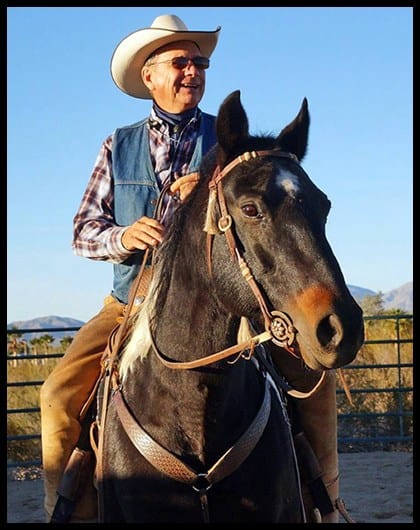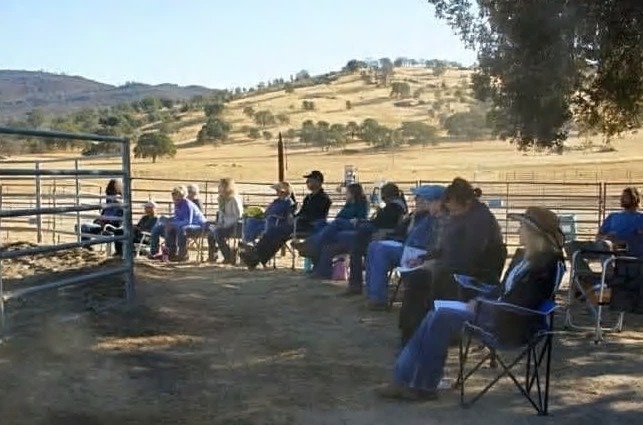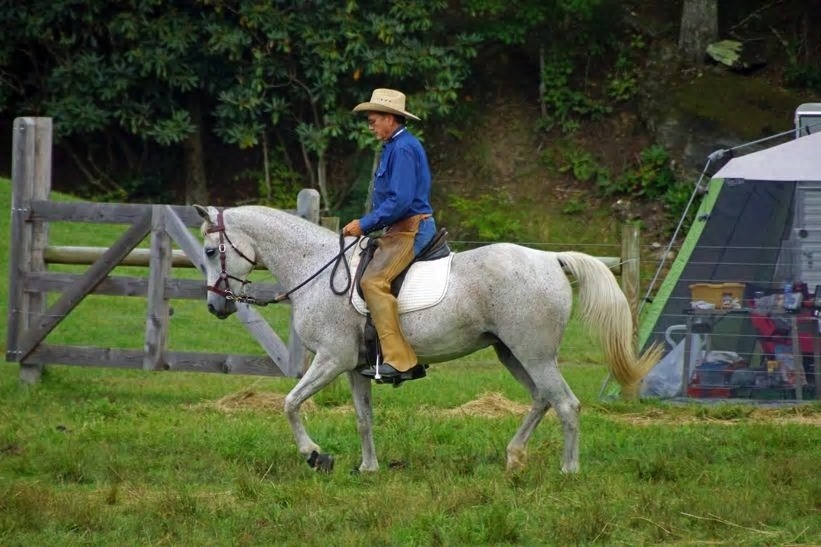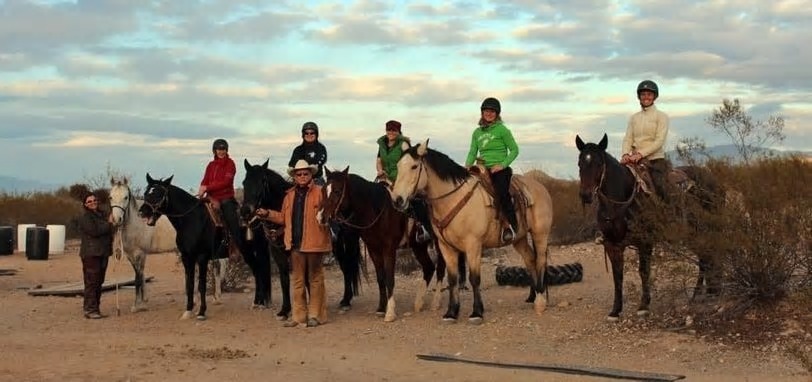Lots of miles and doggone nearly as many horses under his tutorship since Spud grew up north of Manhattan.
While horses may have been his favorite, every critter on the family farm caught his attention, like it or not. In reality, they all liked Spud.
Harry Whitney III, obviously the third one with such moniker, locally and around Kansas known as Spud.

His dad’s Harry at Gumbo Hill diverse home place somewhat area-famous for mother-in-law’s longtime newspaper writings.
So “The III,” another “tater” got his nickname. “Most people know me as Harry nowadays, but some around home call me Spud,” Whitney admitted.
It was the dog, the cat, the rooster, the goat, yes family horses, likely other animals who got Spud’s attentiveness.
He was always teaching them tricks or practicing one his own fancy roping maneuvers on the creatures. Spud’s diversities of talent began early and developed through decades.
Certainly, Harry Whitney III is well known; worldwide actually. Just say his name and eyes of those owning horses generally light up with familiarity.

He’s traveled 50 states conducting Harry Whitney Horsemanship Clinics. Plus, horse knowledge seekers nationwide and around the world come for Harry’s gracious perspectives at his ranch near Salome, Arizona.
Publications feature Harry Whitney’s insightful techniques with horses and those who own them to increase both of their understanding.
Formulating his education, Whitney did rope tricks; then would have a goat or another farm animal perform on command.
His apparent rapport with horses was an uncommon perception not familiar with cowboys, rodeo friends, acquaintances. Always something different, unique in the way horses Spud was handling eagerly pleasantly responded.
Future brightened with opportunity for yearly contracts traveling as entertainer for Jacobsen Rodeo Company.
“I must have been 20-years-old by then. I really learned a lot, a great time at Jake’s rodeos four years,” Whitney appreciated. In the meantime, Spud graduated with an animal science degree from Kansas State University.
With more than 50 performances at a dozen-and-a-half rodeos annually in five states, Whitney started out doing his rope tricks. “Then I got a pair of palominos, did roman riding, tricks with the horses and other acts,” he said.
Then, more rodeo contractors sought his entertainment skills. “I worked for a dozen contractors across the country,” Whitney tallied.
That was trick roping, roman riding, horse programs, comedy acts, then a rodeo clown, pickup man, announcer. Just about whatever a rodeo contractor and committees asked.
“I really liked and wanted to do everything with rodeo, livestock, horses, cowboys and cowgirls,” Spud professed.
Outside the arena, schools started seeking Whitney for lyceum-type rodeo programs.
“Those little shows actually included it all, information about rodeo, trick roping, sometimes in clown outfit-greasepaint, comedy,” he said. “I entertained at schools just about everywhere for three years.”
All the while, Whitney had customer horses in training; a long waiting list.
“I didn’t take a whole barn full like the bigtime trainers,” he said “I’ve always been conscientious to make every horse the best it can be.
“As importantly I want the owners to better understand their horses to get the most out of them,” Whitney added.
Soon, horse owners everywhere were seeking Whitney’s incalculable horse knowledge. They contracted him for horsemanship clinics around the country, training horses, most importantly working with their owners and handlers.
Those who didn’t bring horses wanted to learn too. Clinic sidelines were soon packed with what Whitney defines as “auditors.”

It became and is his fulltime profession: “Harry Whitney Horsemanship Clinics,” headquartered out of the Arizona ranch.
Harry Spud Whitney travels through Kansas occasionally, even gets to his home stomping ground sometimes.
He was back home last month when his mentor-friend Jake Jacobsen passed away. Jake’s family asked Whitney to give the memorial service at the Holton sale barn.
“That was a privilege and honor for such a dear friend who had a big part in what I am today,” Spud acknowledged.
Christmas was at the Manhattan homestead helping do chores. Then back on the road, with horsemanship clinics at Baldwin City, the first two weeks of January.
Ask Whitney how he’s doing, one will probably get a “…tired and grumpy…” response, with a twinkle in his eye.
A self-professed opinionated and narrow-minded horsemanship clinician, Whitney’s belief is solidly rooted in the foundational principles of horsemanship. It’s “from the horse’s point of view.”
Spud’s narrow mindedness is due to the fact that he’s committed to what works for the horse.
“Students observe that change is possible,” Whitney described. “They are encouraged to build upon that foundation to further improve their relationship with their horses.”
Folks find Whitney friendly, knowledgeable and approachable. “I welcome discussion and questions of riders and auditors as they discover that my principles, simply put, do work,” he said.
“So often, we focus on what the horse is doing,” Whitney evaluated. “Then miss the fact that the horse’s mind will affect what he does and how he does it.
“We should give attention to the horse, how he is feeling in the moment, where his thought is,” Whitney critiqued. “Then offer the horse the help he’s looking for. Many of the things we thought were problems will be cleared up.”

Ty Haas, who hosted the Baldwin City clinics at his Midnight Farm, said, “Since 1999, when I first met Harry, I have witnessed many people’s introduction to his perspective of horses.
“A common statement,” according to Haas, “is something like ‘where have these teachings been all my life?’
“The content delivered can create a whole new level for both horse and rider,” Haas said. “It’s a level that, in my experience, brings about an essential peace for horse and rider pairs. Unfortunately, most never get to enjoy this without Harry’s kindly delivered teachings.”
Ross Jacobs of Australia, said, “Harry’s keen eye, sense of what most suits a horse’s needs always impresses me.
“But even more than that, Harry has a knack for helping ordinary horse owners find those skills within themselves,” Jacobs contended.
Anna Bonnage of England said, “I have traveled several times from my home in England, especially to ride at Harry’s clinics in Arizona.
“While being around Harry, the learning truly never ends. His patience, awareness and laughter create an ideal learning environment for his students.
“Harry is committed to enabling us to discover how we can help our horses,” Bonnage continued. “The horses feel better about their work, no matter what we are asking them.”
All breeds of horses, riding styles and abilities are at Whitney clinics with about 35 scheduled annually around the country.

Hosted clinics can be either regular or intensive formats at the facility of the host. Group size is limited to five riders. This allows each to work with Whitney one on one to help develop a better relationship with the horse.

Late fall through early spring clinics are also limited to five riders for five days at Whitney’s Arizona ranch. Opportunity may also arise to work as a group. This can include ground work, round pen experience, in the arena and on the trails.
“At the Bible Horsemanship Clinics, it’s about relationships, not religion,” Whitney said. Cowboy Chaplain Ronnie Moyer of Moyer Ministries joins Whitney twice a year for clinics in California and Virginia.
Daily Bible studies partner with the horsemanship which illustrate Biblical principles applying to all relationships.
For the intensive horsemanship clinics, five riders observe as Whitney works with each horse exclusively the first few days. Principles are shared with riders and auditors as he goes. Owners then ride their horses the last day or two.
The 2019 Harry Whitney Horsemanship Clinic schedule and other information can be found at www.harrywhitney.com.